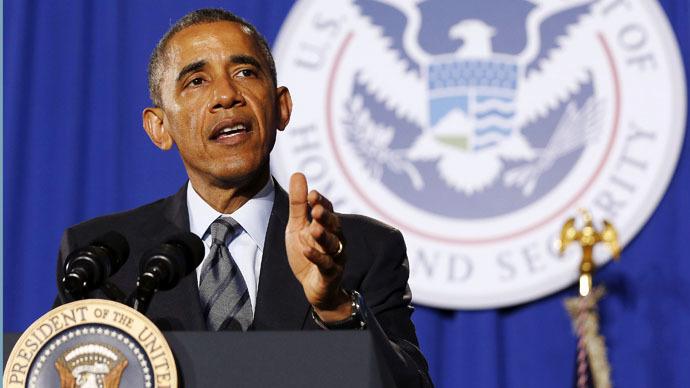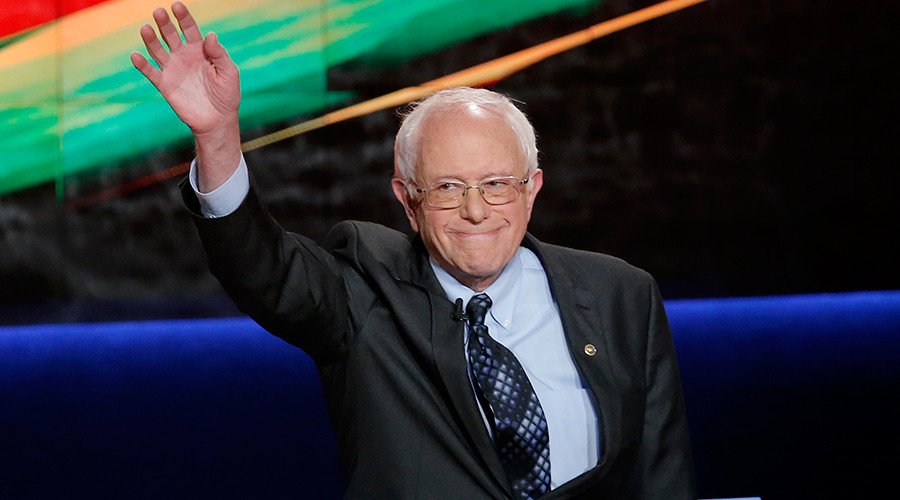CLASS WAR
10 Taxpayer Handouts to the Super Rich That Will Make Your Blood Boil
Tom Cahill | October 28, 2015
The next time you hear someone complain about how the poor get “all this free stuff,” show them this.
FacebookTwitter
The next time you hear someone complain about how the poor get “all this free stuff,” show them this.
A small number of incredibly wealthy Americans are ridiculing Bernie Sanders’ base for wanting “free stuff” when the costliest programs are, by far, corporate welfare and entitlements for the top 1 percent. Fox News has been working hard to tear down Sanders’ proposals to provide Medicare for all, institute tuition-free public college, boost infrastructure spending, and expand Social Security.
“That’s not fiscally possible unless the federal government starts seizing private assets,” said Bill O’Reilly.
But O’Reilly is wrong. The money for Sanders’ platform can easily come from eliminating the costliest entitlement programs for the top 1 percent and multinational corporations. Here’s a breakdown of the most superfluous giveaways to the rich and how much they cost the rest of us:
1. TAX BREAKS FOR OBSCENE CEO BONUSES ($7 BILLION/YEAR)
Currently, the biggest corporations are exploiting a 20-year-old loophole that allows them to write off inflated compensation packages for CEOs, billing stock options, and performance-based bonuses to taxpayers. In 2010, the Economic Policy Institute found out that the biggest corporations cost Americans
$7 billion by writing off inflated executive pay. Between 2007 and 2010, this loophole accounted for more than $30 billion in corporate welfare. According to
The Guardian, fast food industry CEOs cost taxpayers
$64 million through this loophole.
That $7 billion could singlehandedly fund the annual budget for the
National Science Foundation — which, as I recently reported for
US Uncut, funds 11,000 scientific research projects each year and has funded 26 Nobel laureates in the last 5 years.
2. TAX CUTS FOR LUXURY CORPORATE JETS ($300 MILLION/YEAR)
Currently, corporations can claim a huge tax deduction every year by writing off purchases of corporate jets, lavish cars, and chauffeurs as
“security” for their top executives. A Bloomberg analysis from 2011 showed that these tax breaks for some of the wealthiest Americans cost the rest of us
$300 million each year. While that may not sound like much, that’s approximately 50 percent of the
annual budget for the Consumer Financial Protection Bureau, the brainchild of Elizabeth Warren that protects Americans from the financial sector’s most predatory schemes.
3. BIG OIL SUBSIDIES ($37.5 BILLION/YEAR)
According to Oil Change International (OCI), the U.S. government spends anywhere between $10 billion and $52 billion per year on corporate welfare for the fossil fuel industry — one of the wealthiest industries in the world. OCI estimated that total combined subsidies to big oil approached
$37.5 billion in 2014, which includes
$21 billion on production and exploration subsidies.
These subsidies alone cost more than what we currently spend on providing rental assistance for low-income families. In 2013, the department of Housing and Urban Development allocated a total of
$34.3 billion toward tenant-based rental assistance ($19 billion), project-based rental assistance ($8.7 billion), and general public housing programs ($6.6 billion). These programs helped 4.5 million families — half of whom are elderly — keep a roof over their head.
4. PHARMACEUTICAL SUBSIDIES ($270 BILLION/YEAR)
As US Uncut has
previously reported, the pharmaceutical industry costs taxpayers roughly
$270 billion a year when accounting for the cost we pay for life-saving drugs whose patents have been bought up by Big Pharma. This is over $1,914 per household in corporate welfare. This is partly due to the Medicare Part D bill that George W. Bush signed into law in 2003, which prevents Medicare from negotiating drug prices with pharmaceutical companies. But the biggest drug companies also make a pretty penny (a
combined $711 billion in profits between 2003 and 2012) by buying patents for drugs that were largely developed with taxpayer-funded research, then jacking up the price by absurd amounts after cornering the market.

Combined profits of top pharma companies. Data courtesy of healthcareforamericanow.org.
This $270 billion annual subsidy could be virtually eliminated by passing
Bernie Sanders’ bill to establish a government fund that buys up drug patents as soon as they become available for purchase. Then, the government would sell drugs at-cost to save money for those who need them. The money saved could pay for the annual
$270 billion in insurance costs from Obamacare that would help more Americans get access to healthcare.
5. CAPITAL GAINS TAX BREAKS ($51 BILLION/YEAR)
When anyone makes money from selling off investments, the IRS classifies that as capital gains, which are taxed at a lower rate (20 percent as of 2012) than real, actual work (35 percent). Pew Research found that
53 percent of Americans own no stock at all, and out of the 47 percent who do, the
richest 5 percent own two-thirds of that stock. And only
10 percent of Americans have pensions, so stock market gains or losses don’t affect the incomes of most retirees. The Century Foundation found that the total amount of lost revenue by taxing capital gains at a lower rate than wages cost
$256 billion between fiscal years 2012 and 2016, or $51 billion a year over the last 5 years. According to the Tax Policy Center, if investment income was taxed at the same rate as wages,
75 percent of that new revenue would come from the richest 0.3 percent of Americans; 92 percent of that revenue would come from those making $200,000 or more per year. The chart below shows what percentage of income each tax bracket makes from capital gains — not surprisingly, the wealthiest Americans get most of the benefit from capital gains.

Chart courtesy of The Century Foundation.
If we taxed wealth like work, the extra $51 billion per year in savings could fund
two-thirds of the annual budget for food stamps.
6. CORPORATE TAX SUBSIDIES FROM STATE AND LOCAL GOVERNMENTS ($80.4 BILLION/YEAR)
In 2012, the New York Times did an analysis of every existing tax break in each of the 50 states and learned that 1,874 programs cost taxpayers
$80.4 billion every year for corporate welfare in their state. Compare that cost with the cost of providing tuition-free public college to every student, which The Atlantic estimated would be a mere
$62.6 billion. As the chart below shows, this is actually way cheaper than what we currently spend on federal student aid.

Current cost of existing federal college aid. (courtesy of The Atlantic)
7. HANDOUTS TO BIG AG ($18 BILLION/YEAR)
Crop insurance — a program originally intended to help farmers recover from the dust bowls of the 1930s — has become a slush fund for wealthy corporate farmers who have become experts at manipulating the system for their own means. As Bloomberg reported, the median income of commercial farm households (in which farming makes up more than 50 percent of a household’s income) was $84,649 in 2011 — 70 percent more than the average American household. Farmers have learned to exploit the program by growing crops on land they know will be unproductive, then making money from insurance claims rather than crops. In 2011, 26 farmers each got an annual subsidy of $1 million, including one tomato farmer in Florida who got a $1.9 million subsidy.
This $18 billion in corporate welfare is more than NASA’s annual budget, which has hovered around the $17 billion mark since 2009.
8. WELFARE FOR WALL STREET ($83 BILLION/YEAR)
The biggest banks have grown even bigger than they were just before the 2008 financial meltdown. And due to their size, these banks are perceived as “too big to fail,” as their demise would spell doom for the US financial sector as a whole. So as these big banks grow bigger, the Federal Reserve allows them to borrow at lower interest rates than other big banks — essentially subsidizing the continued growth of the big banks. In 2013, Bloomberg estimated the ten biggest TBTF banks suck up $83 billion per year in corporate welfare.
If we were to force the big banks to borrow at the same interest rates as every other bank at a rate of $83 billion per year, that would be enough to double the current federal budgets for highway spending ($48.6 billion), Head Start ($10.1 billion), the Environmental Protection Agency ($7.89 billion), nutrition assistance for women, infants, and children ($6.2 billion), the National Parks Service ($3 billion), and the Federal Deposit Insurance Corporation ($2.39 billion), with $5 billion left over.
9. EXPORT-IMPORT BANK SUBSIDIES ($112 BILLION)
This week, the House of Representatives voted to revive the Export-Import (Ex-Im) bank, which has been maligned as a slush fund for large, multinational corporations. In its most recent year, the Ex-Im bank had a $112 billion portfolio, of which $90 billion went to multinationals. If that wasn’t bad enough, a huge portion of that money went to just 10 wealthy corporations.

According to the New York Times, the federal government spends roughly $105 billion on public K-12 schools. If we allow the Ex-Im bank to fade away, the money formerly set aside for corporate subsidies could instead double that investment in public education.
10. FEDERAL CONTRACTS FOR THE TOP 200 BIGGEST COMPANIES ($880 BILLION/YEAR)
The biggest 200 corporations have an excessively unfair advantage over their competitors due to their influence in Washington. According to the Sunlight Foundation, the top 200 companies spent a combined $5.8 billion on lobbying Congress between 2007 and 2012. And in those same years, those companies received $4.4 trillion in federal contracts. That $4.4 trillion is $100 billion more than what the U.S. government spent on providing a basic income to the nation’s 50 million Social Security recipients. This chart shows how much the top ten corporations spent on lobbying and how much they got in return:

The combined cost of these 10 corporate welfare programs is $1.539 trillion per year. The three main programs needy families depend upon — Temporary Assistance for Needy Families ($17.3 billion), food stamps ($74 billion), and the Earned Income Tax Credit ($67.2 billion) — cost just $158.5 billion in total. This means we spend ten times as much on corporate welfare and handouts to the top 1 percent than we do on welfare for working families struggling to make ends meet.
Tom Cahill is a writer for US Uncut based in the Pacific Northwest. He specializes in coverage of political, economic, and environmental news. You can contact Tom via email at tom.v.cahill@gmail.com.








 Christine Maguire @_ChrisMaguire
Christine Maguire @_ChrisMaguire